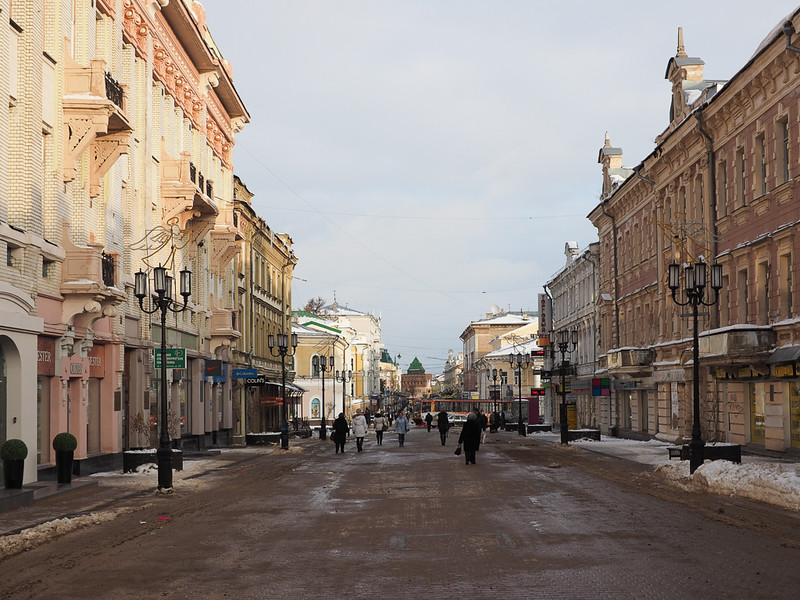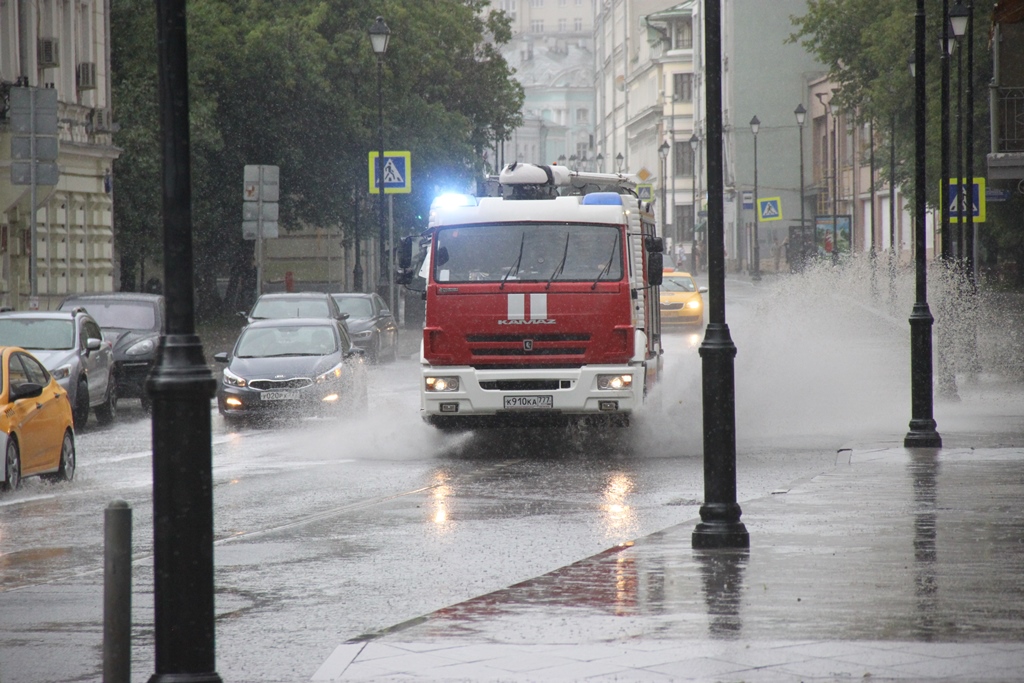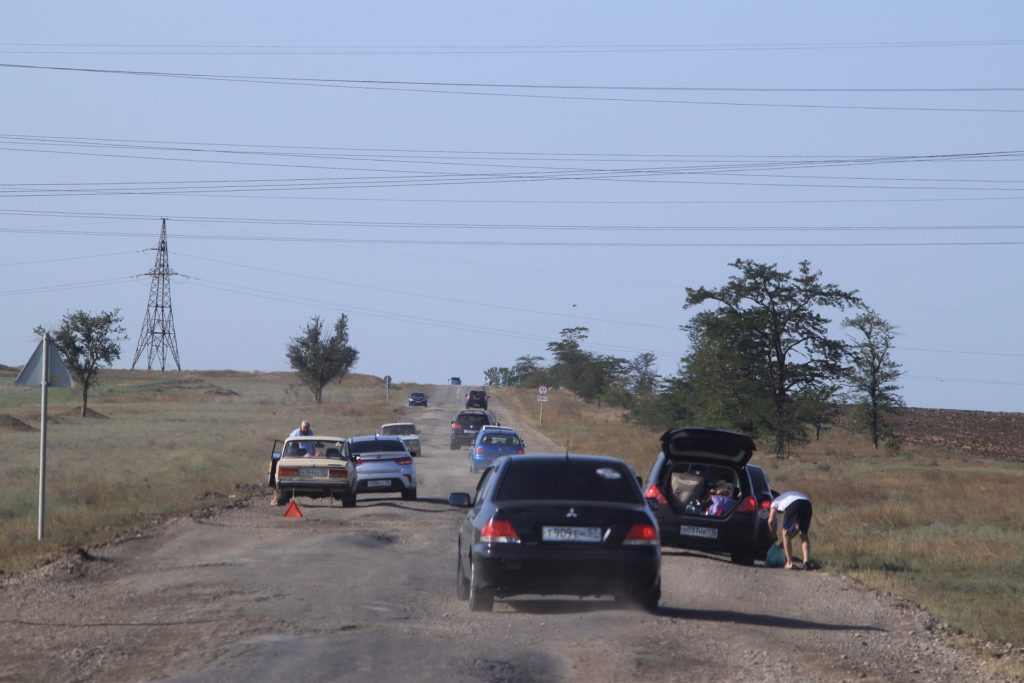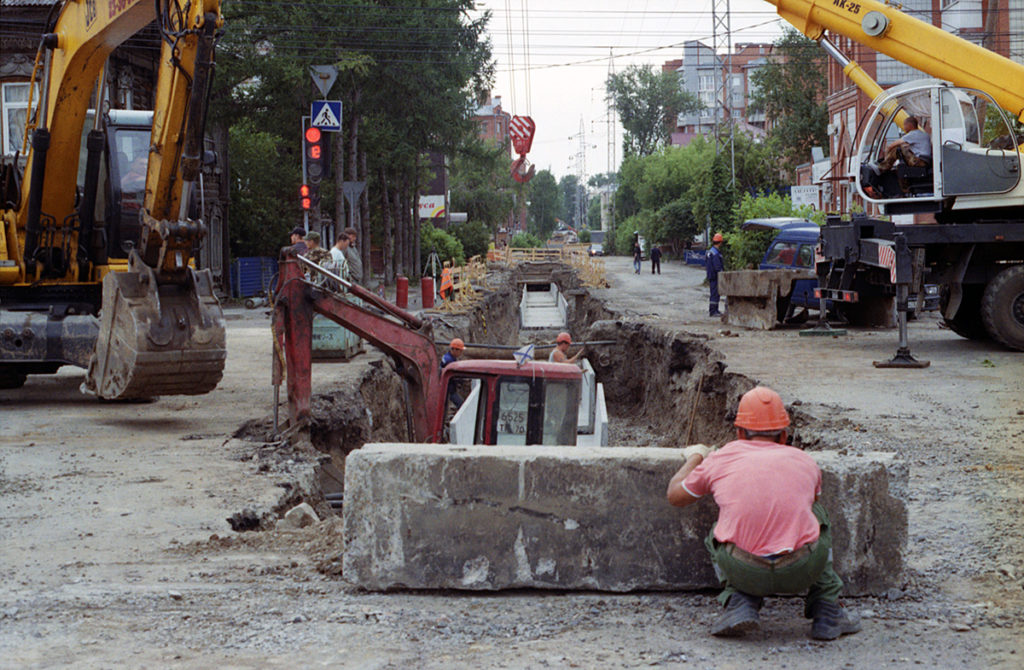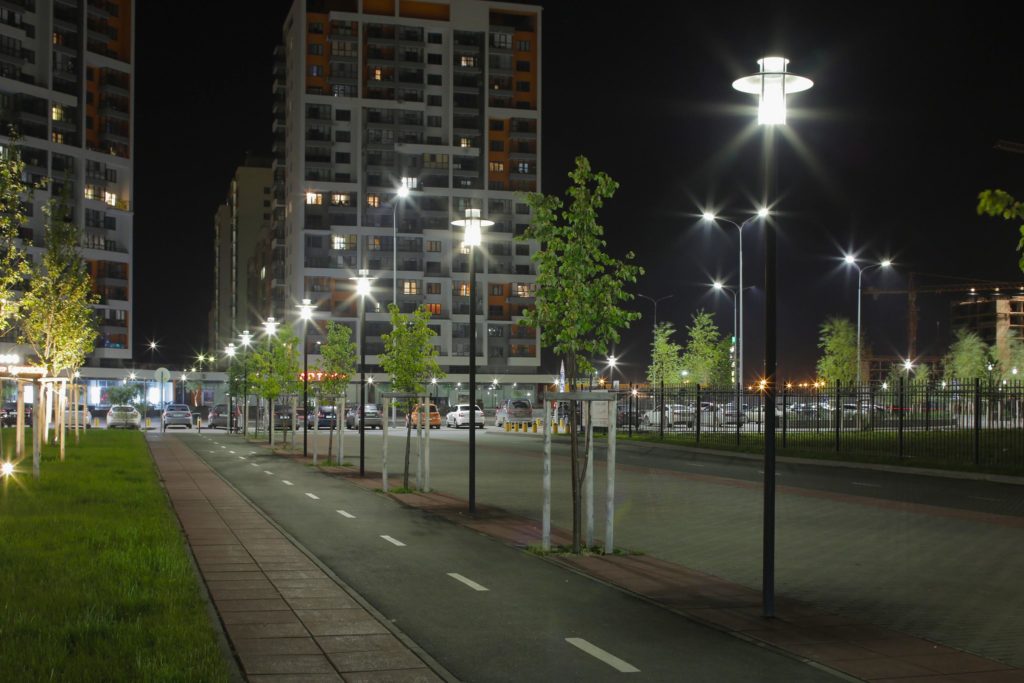Two Main Russian Problems – Fools and Roads Posted by Nadya on Jan 12, 2021 in Russian life, Vocabulary, when in Russia
This time we will touch on a hot topic in Russia — its roads. They are terrible. The driving culture is not better.
“В России две беды́: дураки́ и доро́ги”
“There are two troubles in Russia: fools and roads” is a catchphrase attributed to Gogol, Saltykov-Shchedrin, sometimes Karamzin, or Vyazemsky, even Nikolai I. It is not so important how this phrase became popular. The important thing is that the problem itself arose a long time ago.
If everything is clear with fools (дураки́), they are everywhere, then with the roads (доро́ги), it is more interesting. In the rating of the quality of highways, Russia is at the very end.
You can find Russian proverbs for a variety of occasions talking about fools HERE.
“Moscow is not Russia”
You may have heard another well-known phrase: “Moscow is not Russia” (“Москва́ – не Росси́я”). This means that all other cities are extremely lagging behind the capital in their progress. Therefore, everything below does not apply to it. Well, or it does, but not that much. Muscovites (москвичи́) have a different problem – eternal traffic jams (про́бки).
By the way, some time ago, the most impudent drivers (води́тели) solved this issue by using illegal sirens (сире́ны). Officially, they are intended only for emergency services and high-ranking officials. And should be used in an emergency (чрезвыча́йная ситуа́ция). But who said that getting home for lunch is not urgent?
Why Are Russian Roads So Bad?
You can still buy a driver’s license (води́тельские права́) in Russia (obviously illegal) without taking any tests. Can you imagine how these people drive (води́ть маши́ну)?
Given that alcoholism (алкоголи́зм) is rampant in many parts of the country, car accidents (ава́рии) are even more frequent.
One well-known Russian actor, Mikhail Efremov, was recently convicted of a fatal road accident. A critical level of alcohol was found in his blood. The next day, the TV star could not remember anything. Then he admitted his guilt (вина́). But later, he refuted it. He also lied that another person was driving his car, attempted to escape to Latvia, tried to bribe the deceased’s family, and changed his lawyer during the investigation. He was even declared sick. And the recordings from the surveillance cameras disappeared without a trace.
The whole country followed the news. Usually, in such cases, “мажо́ры” (“the boys born with a silver spoon in their mouth”) buy off with the hush-money (взя́тка), and the stories suddenly subside. But at that time, there were too many eyewitnesses. Efremov was jailed.
For some time, I lived in Belarus. At first, while driving along the road, there was a feeling that I was missing something. I couldn’t figure out what exactly. And one day – Eureka! The car was not shaking. The roads in Belarus are smooth (гла́дкий) and flat (ро́вный). By the way, there is also very little corruption (корру́пция) there.
But in Russia, there is a lot of it. Some corrupt deputies use road maintenance (обслу́живание доро́г) for their own enrichment. The city budgets indicate high-quality materials and expensive labor, but cheap ones are used instead. After taking money from the government, the most insolent officials say that the roads have been repaired, but in fact, no one even started work.
It is a common practice to pave roads during the first snow. People often joke that it’s finally time for road works and changing pipes. Besides, road services do not know how to make asphalt more water-resistant. Every spring, a part of the road surface goes away with the snow.
The roads outside of cities are often poorly illuminated as well.
National Projects
During World War II, German intelligence did not realize how bad the Russian roads were. Its transport (тра́нспорт) was not designed to handle such deep mud (грязь) after the rain. Распу́тица (the period when roads become impassable due to seasonal weather changes) more than once “rescued” Russia during the wars. But even today, not all German-made (or any others, for that matter) cars can move freely on Russian roads.
However, driving standards among new drivers are now subjectively better than they were a decade ago. People are finally wearing seat belts (ремни́ безопа́сности). The driving culture has certainly improved significantly.
The Russian government plans to create a modern, comfortable, and reliable transport infrastructure by 2024. A new project, “Safe and high-quality roads,” has already been launched. For example, Tyumen has an excellent road surface (доро́жное покры́тие) today.
But Russia still has to work hard on the problem of roads and the fools on them.
Read more about Driving In Russia and see a list of Useful Driving Words.
Synonyms for “доро́га” (road)
Доро́жка — a small path for pedestrians and bicycles; diminutive of “дорога”
Тропа́ — a narrow dirt road trod by people or animals
Тропи́нка — diminutive of “тропа”
У́лица — street
У́лочка — diminutive of “улица”
Алле́я — a road with trees or bushes on both sides
Шоссе́ — highway
Автостра́да — motorway
Магистра́ль — highway
Переу́лок — a small street usually serving as an intersection between two other streets
Проспе́кт — a wide street in the city
Прое́зд — a road on which you can drive; connects two parallel streets
Путь — way

Build vocabulary, practice pronunciation, and more with Transparent Language Online. Available anytime, anywhere, on any device.



